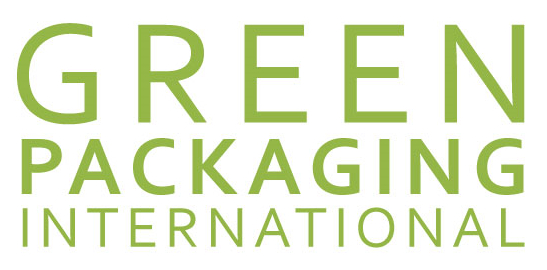Super User
Södra’s green investment continues – with switch to recycled material in packaging
Södra’s investment in circularity continues. Through a new partnership with Swedish company Trioworld, Södra’s timber packaging will now contain 30 percent recycled plastic, which will reduce annual emissions from the packaging by around 23 percent.
“With the new packaging, we are ensuring high-quality deliveries for our customers, while also taking an additional step towards a more circular business model with lower emissions. This is a trend we will continue to pursue. On the challenges with sustainability, there is no finish line to pass and we are constantly working to be the market leader and develop our processes. This will help Södra and our customers contribute to a sustainable climate transition,” said Andreas Jonasson, Sales & Marketing Director at Södra Wood.
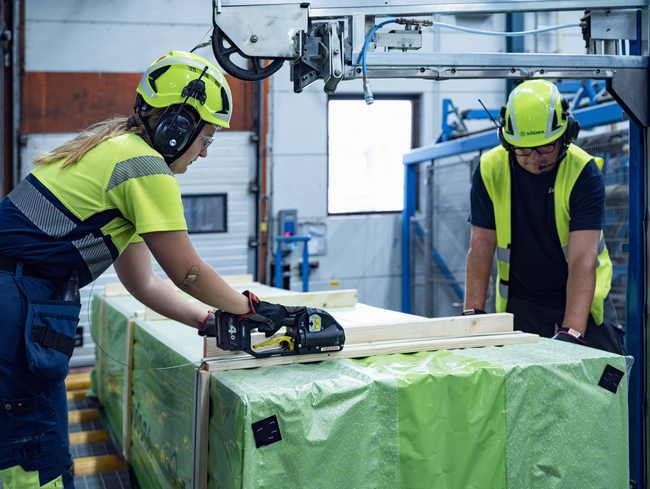
Reduce emissions by 23 percent
The new timber packaging is called Trioworld Loop and will be used for all Södra’s timber deliveries – both domestic and exported. The material contains at least 30 percent Post-Consumer Recycled (PCR) Plastics. As a result, Södra expects to cut its emissions by nearly 385 tonnes of CO₂ equivalents per year, corresponding to 23 percent of annual emissions from the packaging.
Södra is first to offer timber packaging with PCR plastic in larger scale. The development is in line with Södra’s targets for reducing its emissions and building a climate-positive business.
“Trioworld believes in long-term partnerships. When developing sustainable solutions for tomorrow, ambitious partners such as Södra are a key lever for minimising the environmental impact of packaging without compromising on transport safety or the protection of the timber. Our solution with 30 percent post-consumer recycled content will significantly reduce the environmental impact of the packaging – and that’s just the beginning of sustainable packaging for the forest industry from Trioworld,” said Adam Fransson, Senior Account Manager, Trioworld.
Södra’s timber products will be delivered with the new Trioworld Loop packaging from September.
Founded in 1938, Södra is Sweden’s largest forest-owner association, with 53,000 forest owners as its members. We conduct modern and responsible forestry, and operate state-of-the-art mills in which we process our raw material. In 2020, net sales amounted to SEK 20 billion and employees totalled 3,100. Through value-generating relationships and a long-term approach, Södra shows the way for the next generation of forestry.
SinnovaTek closes $5M preferred equity investment from Lewis & Clark AgriFood
$5 million investment will help SinnovaTek meet the processing and packaging needs of emerging food and beverage brands
Lewis & Clark AgriFood has announced its $5 million investment in SinnovaTek from the Lewis & Clark Rural Business Investment Company (RBIC) Fund II.
Founded in 2015 and based in Raleigh, North Carolina, SinnovaTek provides a variety of B2B services to the consumer packaged goods industry. Over the past year, the company has seen significant growth in their aseptic co-packing business, which offers ingredient sourcing, product development and processing, as well as end packaging, to a variety of small and emerging brands as well as large national brands.
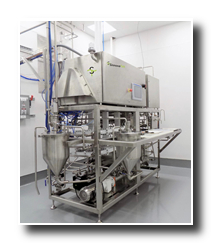 “SinnovaTek is a key player in the next generation of CPG food and beverage brands,” said Dave Taiclet, General Partner and Managing Director, Lewis & Clark AgriFood. “As consumers continue to demand healthier foods produced with sustainable practices throughout the supply chain, processing and packaging will play a huge role in delivering on those brand promises.”
“SinnovaTek is a key player in the next generation of CPG food and beverage brands,” said Dave Taiclet, General Partner and Managing Director, Lewis & Clark AgriFood. “As consumers continue to demand healthier foods produced with sustainable practices throughout the supply chain, processing and packaging will play a huge role in delivering on those brand promises.”
As a Certified B Corp, SinnovaTek’s mission is to promote worldwide health and wellness by fostering the delivery of high quality, healthy foods through sustainable methods. The company has several partnerships through which they are combatting hunger and malnourishment in developing regions.
“The investment from Lewis & Clark AgriFood has us well-positioned to grow along with our partners in the CPG space as they provide nutritious foods with longer shelf-lives,” said Michael Druga, Co-founder, President and CEO, SinnovaTek. “Drawing on the industry leadership and connections from the Lewis & Clark AgriFood team will be key drivers for this growth.”
Underpinning SinnovaTek’s capabilities is proprietary technology that improves quality and sustainability in shelf-stable foods. SinnovaTek’s scalable, regional, “quality-first” offerings positions them as a unique service partner increasing accessibility to high-quality processing for the food and beverage industry.
The SinnovaTek family of companies provides several pathways to service its customers' needs:
- SinnovaTek: Provides high-quality continuous flow microwave processing systems and pumps to food manufacturers along with the engineering and R&D support to make them successful.
- SinnoVita: Provides science-backed VITERO ingredient technologies to reduce food waste and increase nutrient delivery.
- FirstWave: Provides a platform for companies to launch and test new products in a high-quality aseptic format without the minimum order quantities that are normally required for a launch, enabling SinnovaTek to service customer production needs before they are ready to move to a larger scale.
As part of the investment, Tim Hassler, Managing Director of Lewis & Clark AgriFood, received a seat on the board, and Matt Plummer, Senior Associate of Lewis & Clark AgriFood, received a board observership.
“I am excited to work closely with SinnovaTek as it scales up its offerings, bringing its technology to new and emerging brands,” said Hassler. “As the food and beverage space undergoes a transformation, SinnovaTek can help these brands capitalize on new opportunities.”
About SinnovaTek
SinnovaTek is a leading developer and integrator of advanced food processing equipment and technology through its family of companies including SinnoVita and FirstWave. As a certified B corporation, SinnovaTek’s mission is to promote worldwide health and wellness by fostering the delivery of high quality, healthy foods through sustainable methods. SinnovaTek is passionate about finding the best solution for its customers. Learn more at sinnovatek.com
About Lewis & Clark AgriFood
Lewis & Clark AgriFood is a St. Louis-based group of experienced investment professionals who are passionate about investing in companies at the forefront of food and agriculture innovation. We look for companies that deliver benefits to the stakeholders in the food and agriculture sector from the producer to the supply chain, all the way to the consumer. We invest in companies at the growth stage of their evolution, poised to scale their technology to a national or global scale. As founders, operators, investors and scientists, our seasoned investment team brings a breadth of quality sector experience to every investment. For more information, visit lewisandclarkagrifood.com
Cartonboard proves its life cycle credentials
A new life cycle analysis report has highlighted the outstanding environmental credentials of cartonboard packaging when compared against fossil-based alternatives.
Published in June 2021, Cartonboard Life Cycle; Comparing the carbon footprint of carton packaging against alternative solutions, goes into the granular detail of the cradle-to-grave environmental performance of cartonboard in frozen food, ready meal, fast food and small electricals packaging, compared to other commonly-used packaging materials, such as multilaminate film bags, PP trays, PET trays and PVC blister packs.
The study, carried out by RISE (Research Institutes of Sweden) Bioeconomy unit for Pro Carton, the European Association for Carton and Cartonboard Manufacturers, and peer reviewed by Intertek, provides an insight into the relative carbon footprints for packaging in different consumer sectors, alongside detailed explanations of the factors driving those comparative results.
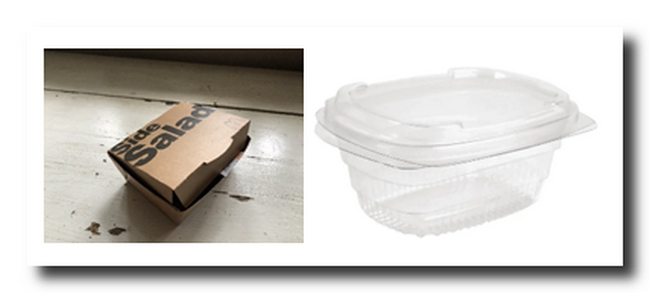 Fast Food Packaging
Fast Food Packaging
RISE’s cradle-to-grave comparison ensures that the entire lifecycle of packaging is taken into account – from how it is produced (or grown in the case of the wood used in cartonboard manufacture) to processing and disposal. The study reports both fossil green-house-gas (GHG) emissions and biogenic GHG emissions and removals.
Fossil GHG emissions arise from non-renewable sources such as fossil fuels, while Biogenic emissions arise from the combustion of biofuels and the degradation of bio-based products. Biogenic removals refer to CO2 uptake from the atmosphere through photosynthesis during biomass growth.
Pro Carton General Manager Tony Hitchin commented: “Whilst the unique aspects of the life-cycle of fibre-based packaging are taken into account when calculating the total carbon footprint we also wanted to see what the results would be when only the fossil green-house-gas (GHG) emissions were considered and the cartonboard solutions gave a favourable result.”
About Pro Carton
Pro Carton is the European Association of Carton and Cartonboard manufacturers. Its main purpose is to promote the use of cartons and cartonboard as an economically and ecologically balanced packaging medium. www.procarton.com
ANTALIS LAUNCH THE NEXT GENERATION OF SUSTAINABLE SELF-ADHESIVES
Antalis are pleased to be launching the new and improved version of the Graphic self-adhesive range from UPM Raflatac, RAFNXT+, the world’s first label material to be verified by The Carbon Trust.
The importance of providing customers with sustainable and high-performance products continues to increase in today’s environmentally-aware society. RAFNXT+ helps to mitigate climate change, drawing from responsibly managed forests and decreasing carbon emissions.
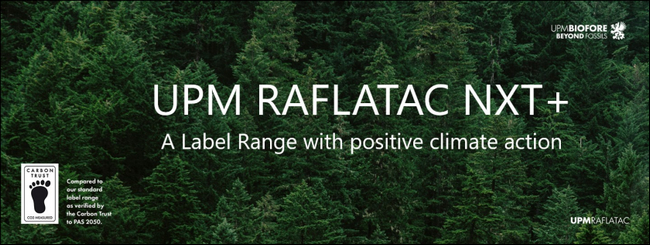
RAFNXT+ is a new range from UPM Raflatac, a line of high quality, self-adhesive sheets. The lower grammage backing paper of RAFNXT+ (3gsm lighter) is FSC certified, allowing Antalis to classify the whole range as FSC Mixed Credit. The face paper in the new range remains the same as previous Raflatac Graphic products, so the high-quality printing performance is unaffected.
RAFNXT+ is the world’s first label material to be verified by The Carbon Trust, an achievement accomplished as a result of the product design’s smarter use and choice of natural resources, and the use of less raw materials, energy and water.
Ben Cahill, Product Manager at Antalis comments, “We are pleased to be the exclusive self-adhesive sheet distributor for UPM Raflatac in the UK, and their new RAFNXT+ range provides customers with a fully FSC certified product, which also has the advantage of being the world’s first label material to be verified by The Carbon Trust”.
About Antalis
Antalis is a member of the Kokusai Pulp & Paper Group, a worldwide leader in the distribution of Papers, Packaging and Visual Communication media, based in Japan.
In Europe and Latin America, Antalis is the leading B2B distributor of products and services in Papers and Industrial Packaging, and number two in the distribution of Visual Communication media, with global reported sales of €2.1 billion in 2019.
Headquarters are in Paris (France). Antalis operates in 31 countries serving over 110,000 customers with a team of 4,000 employees and breakthrough e-commerce solutions.
Our 103 distribution centres focus on eco-responsibility and provide a world-class service with over 11,000 daily deliveries.
To learn more, visit www.antalis.com
PERFORMANCE, AESTHETICS AND CIRCULARITY? IT’S ALL IN THE BLEND
James Cropper’s Richard Burnett explains why expert blending of upcycled and virgin fibre is the key to connecting the three cornerstones of modern papermaking.
The feverish focus on sustainability in the paper and packaging world is no secret. Neither is it exclusive to this industry. But as we all work on ways to leave little to no trace on the planet, over our shoulder, the need for performance and beautiful design is still very much present. There is no compromising on aesthetics and functionality while we work on circularity. If anything, demand for premium papers which deliver functionality for the converter or printer, and brand experience to the end user is only growing.
How do we deliver on the three cornerstones of modern papermaking…performance, appeal and circularity? It begins and ends with fibre.
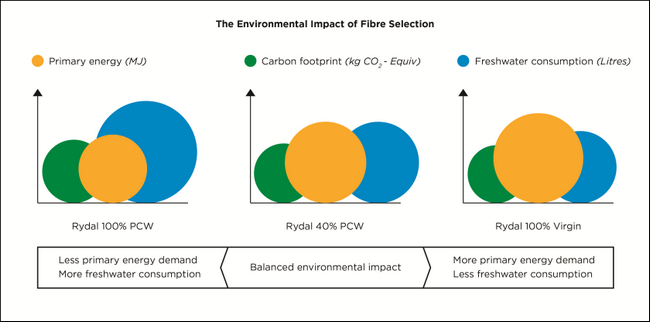
With increasing legislative and consumer pressure on brands to do more for the environment when it comes to paper and packaging; giving waste fibre a second life is a great story to tell. However, we know through our own research and leading industry data that if you consider the carbon footprint, energy usage and water usage environmental indicators, there is no clear advantage or disadvantage to using wastepaper fibre feedstock over virgin wood.[1]
In fact, the majority of the impact for both recycled and virgin paper is attributable to the combustion of fuels for pulp and paper production. However, assuming best in class technology is used, the impacts from virgin and recycled paper are broadly similar.
But what if the reclaimed fibre comes from difficult to recycle, high-volume waste streams which would otherwise end up in landfill or incineration. This was the fate of 2.5 billion single use coffee cups every year until 2013, when James Cropper pioneered the world’s first technology to extract the good quality paper fibre used in coffee cups, and upcycle it into beautiful, premium paper. This is a rich, UK based fibre source, and the responsible thing is it to give it a second, third and fourth life; something our CupCyclingTM facility can do.
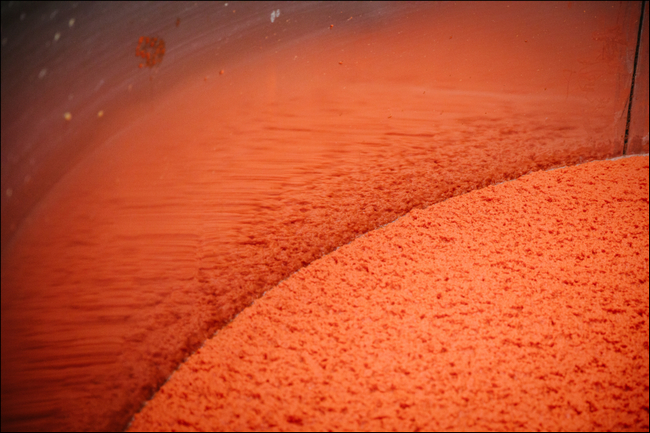
The upside is not only environmental. This is a powerful story for brands to tell their consumers. The concept of circular design is ever present in the consumer mindset; but being able to say that your packaging was once a coffee cup takes it from the conceptual to the tangible. In turn, it garners brand loyalty.
Paper is sustainable by design. With the product cycle for paper encompassing renewable resources and recycling after use, paper truly embraces the principles of the circular economy. However, it’s also worth noting that a paper cycle based on waste fibre alone is not a viable option, as the fibres degrade in the recycling process and become unusable in papermaking after multiple uses. Fresh fibre from responsible sources is a key element of a healthy eco system, and a balanced stream of fresh and waste fibre is always required to keep the paper cycle working.
So while the right thing to do is to reclaim waste fibre, virgin fibre is also essential. Perhaps the solution is in variety and fibre blending? And the stats stack up. A recent independent Life Cycle Analysis report on our Rydal Collection showed the environmental impact of each of the fibre options available in the range. These include 100% post-consumer waste recycled, 40% post-consumer waste (PCW) recycled and 100% fresh fibre from responsible forestry sources (FSC).
What became apparent was that the 40% recycled quality demonstrated more of a balance across the key measures;
- 100% PCW option showed least impact in terms of primary energy demand
- The 100% virgin option showed least impact on freshwater consumption
- There was no significant difference between the options on carbon footprint
The blended fresh and upcycled quality offers the best balance from an environmental perspective.
But what about appearance? What about the look and feel; the experience of paper which is also crucial to the consumer brand experience? Many believe that aesthetics and performance are best delivered through fresh fibre, since the paper fibres are cleaner and more consistent in quality; they have an affinity to colour and impart attributes such as stiffness and strength. Does the inclusion of reclaimed fibre sacrifice too much?
For us, there can be no compromise. With 175 years of premium papermaking knowledge behind us, we know that expertise in fibre selection and colour application, alongside a bespoke approach to each product, allow us to create paper products which give valuable waste streams a second life while maximising performance and aesthetics.
The fibre mix must be totally aligned to the end use, to ensure the paper quality performs well in subsequent print and conversion processes. For example, choosing only the very highest quality recycled fibre streams (such as CupCycling fibre) minimises issues with cleanliness to the point where we can confidently say that our reclaimed fibre is not just recycled, but upcycled. It is then blended to create something even more beautiful and premium than before.
It is true that some strength properties can be affected with the use of reclaimed fibre; however with 40% inclusion of some carefully selected pre and post-consumer, high strength fibre streams, we have seen excellent performance; further evidence that a blend is best. A great case study for this is our work with Burberry, which uses includes 40% CupCycling fibre for their packaging and retail shopping bags. Not only has this partnership seen 58 million coffee cups upcycled, but the end product is luxurious and robust.
Fibre selection, whether virgin or recycled is crucial in creating premium products which is why James Cropper develops and invests in world-leading technology to develop our own local source of very high quality pre and post-consumer upcycled fibre streams.
With all the evidence which we have to hand, it’s refreshing to conclude, that aesthetics and performance need not be sacrificed at the altar of circularity. It’s just in the blend.
[1] DEFRA - LCA of Paper Supply Systems
Zume Partners with Solenis to Open Up PFA-Free Molded Fiber Packaging and Manufacturing Playbook to Global Food and CPG Brands
In an unprecedented move, the companies are open-sourcing the recipe and playbook to encourage all brands to leverage the breakthrough in their manufacturing processes.
Zume, the sustainability solutions company creating economically viable substitutes for single-use plastics, today announced a partnership with Solenis, a leading global producer of specialty chemicals. They are open-sourcing a PFAS (per- and polyfluoroalkyl substances) replacement for food packaging manufacturing to food manufacturers and CPG brands across the global market. To see the open-source process, go to: zume.com/pages/freefromPFAS.
In conjunction, Zume is announcing it will no longer manufacture any products that contain PFAS from its California packaging facility, effective immediately, and the company is collaborating with its global partners to ensure that all production globally is PFA-free by the end of 2021.
“Open-sourcing our PFA-free solution creates a path for brands across the world to remove plastics and harmful chemicals from their consumer packaging and single-use goods,” said Zume CEO and Chairman Alex Garden. “Brands have made pledges to remove PFAS and this new launch will enable them to deliver on their promises.”
After nine months of deep collaboration and R&D to create a solution that reduces the need for single-use plastics, Zume and Solenis are open-sourcing the recipe and manufacturing process so that all packaging manufacturers can adopt the technique and speed up the removal of harmful chemicals. This marks an important milestone for the industry, as two major companies unveil the complex process of creating a molded fiber packaging solution that ensures food grease and water resistance without the need for PFAS or harmful chemicals.
“Our goal is to encourage any manufacturer in the world to start using this technology as quickly as possible,” said Solenis CEO John Panichella. “Through this joint initiative with Zume, global brands can meet their commitments to eliminate the use of PFAS faster than ever before.”
The new scientific report cowritten by Zume and Solenis, Putting Forever Chemicals to Rest: An Open-Source Guide to PFAS-Free Packaging, details the findings from both companies’ scientists as they created and tested the new process. The coauthors conclude that products leveraging the new solution will be fully compostable within 90 days of disposal.
The joint team identified five key parameters — thermoforming, freeness, chemistry management, charge management and part formation — for achieving oil and grease resistance, with chemistry that eliminated PFAS and achieved two hours of oil holdout with 60°C oil. By following these process parameters and control strategy, manufacturers around the world will be able to provide end-use consumers with a fully functional product that does not pose a health risk.
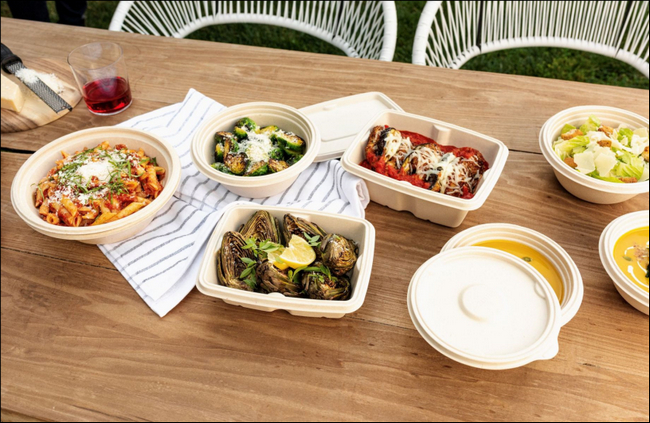
PFAS, largely known as forever chemicals, are used to coat paper and cardboard containers for fast food and to-go boxes and have been linked to potentially harmful health effects, including decreased fertility, weakened immune system response and increased risk for certain cancers, according to the CDC. The Food and Drug Administration has mandated that these substances will not be allowed in the manufacturing of food-contact packaging after January 2024.
News of Zume’s PFA-free open-sourcing comes on the heels of several major moves from the company this year. In June, the company shared global expansion deals with 20+ countries spanning the UK, Europe and Russia, followed by sustainable manufacturing agreements with India’s Parason and Satia Industries in May. Most recently, Zume unveiled a high-profile partnership with Texas-based Jefferson Enterprise Energy to build a $220M, 100% clean energy-powered, sustainable manufacturing plant.
Last month, Delaware-based Solenis announced that it was merging with Sigura in an acquisition by Platinum Equity that was valued at more than $5 billion.
The study’s participants were Pamela Horine, VP Product Research and Compliance, Zume, Inc.; Christopher Dilkus, Senior Research Scientist, Solenis LLC; Cindy Chau, Quality Engineer, Zume Inc.; and Dottie Klein, Assistant Manager Sales, Solenis, LLC.
To see the open-source process, go to: zume.com/pages/freefromPFAS.
To partner with Zume and Solenis, go to: zume.com/pages/brands.
About Solenis
Solenis is a leading global producer of specialty chemicals, focused on delivering sustainable solutions for water-intensive industries, including the pulp, packaging paper and board, tissue and towel, oil and gas, petroleum refining, chemical processing, mining, biorefining, power and municipal markets. The company’s product portfolio includes a broad array of water treatment chemistries, process aids and functional additives, as well as state-of-the-art monitoring and control systems. These technologies are used by customers to improve operational efficiencies, enhance product quality, protect plant assets and minimize environmental impact. Headquartered in Wilmington, Delaware, the company has 41 manufacturing facilities strategically located around the globe and employs a team of approximately 5,000 professionals in 120 countries across five continents. Solenis is a 2021 US Best Managed Company.
For additional information about Solenis, please visit www.solenis.com
About Zume
Founded in 2015, Zume is actively reducing the world’s plastic waste with economically viable substitutes for plastic packaging. As creators of the world’s most advanced molded-fiber manufacturing system, Zume is a global provider of sustainability solutions and offers a vast range of sustainable manufactured solutions and services across the food, beverage, healthcare, and CPG categories. For more information, go to zume.com and to see a video of how Zume works, please go here.
Lucart chooses Kӧrber integrated solutions to guarantee quality and performance even in packaging
Efficiency and performance also in the creation of packaging: this is what Lucart is looking for. Lucart is one of the leading companies in the tissue products sector and has been pursuing sustainability objectives for many years, starting from recycled paper made with beverage cartons to biodegradable packaging.
Gabriele Coli, Lucart’s Engineering Manager, comments: "Primary and secondary packaging are of fundamental importance in our company, so we were looking for a solution that would guarantee quality, efficiency, and performance and that would allow us to respond to the growing demand for eco-sustainable packaging. The analyses of our technicians have shown that, to achieve our objectives, Kӧrber Casmatic was the best technology, so we decided to invest in 8 machines to make primary and secondary packaging”.
Designed to reach production speeds of up to 27 bags per minute, Casmatic CMB270 is able to pack in a high range of formats. Synonymous with quality and reliability, these machines are extremely flexible and versatile, allow energy savings of 60% thanks to the new TOSS longitudinal sealing system, and have been designed to wrap small packaging even at high production speeds. This model is also equipped with a new patented Revolver system that significantly improves the production speed for bundles with single rolls and packages.
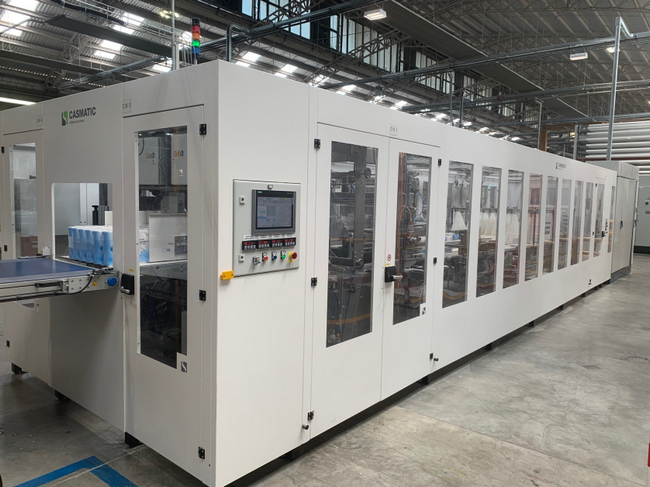
CMB270 responds perfectly to Industry 4.0 demands because it is equipped with ALL-IN-ONE technology, an intelligent application that helps to integrate and harmonize the converting and packaging processes, maximizing the result, without the need for human intervention.
In addition to the packaging machines, Lucart has also equipped itself with a Perini MyLine converting line. This line is designed for the production of toilet and kitchen paper rolls with diameters up to 200 mm at a maximum speed of 600m / min and a production of 40log / min. Based on the consolidated Sincro exchange phase system, the Perini MyLine line is equipped with a laminator-embosser with 409mm diameter steel rollers, with DESL or Catalyst technology for the automatic change of steel rollers, in the Pro and Flexy versions.
Giuseppe Alberti Sales Manager Kӧrber comments Kӧrber comments: "Our relationship with Lucart is a long one - 80% of their lines are Kӧrber - this has also allowed for an important customization of the line. With this investment Lucart was able to access the best technology to optimize its production efficiency. A strong competitive advantage for a company that has always focused on high quality and product differentiation to be competitive ".
Lucart
Lucart, a leading company in Europe in the production of tissue paper products (paper items for daily use such as toilet paper, kitchen paper, napkins, tablecloths, handkerchiefs etc.), airlaid products and MG paper, was founded in 1953 by the Pasquini Family. The company's production activities are distributed over 3 Business Units (Business to Business, Away from Home and Consumer) operating in the development and sales of products with brands such as Tenderly, Tutto, Grazie Natural and Smile (Consumer area), Lucart Professional, Tenderly Professional, Fato and Velo (Away from Home area). Lucart's production capacity exceeds 395,000 tonnes/year of paper on 12 paper machines.Its consolidated turnover amounts to more than €500 million, with more than 1,600 employees in 10 production plants (five in Italy, one in France, one in Hungary, two in Spain and one in UK) and one Logistics Center in Italy.Lucart is part of the United Nations Global Compact Network Italy and since 2018 has been a member of the Ellen MacArhur Foundation, the international organization leading the transition to the circular economy.
Körber Business Area Tissue
At Körber, our ultimate goal is to empower our customers’ ongoing success. We are the only truly integrated and global provider of advanced solutions for the tissue business. We offer the industry’s most comprehensive portfolio of tissue technology to support customers across the entire value chain — from roll to fold, from converting to packaging. Our advanced, automated, and easy-to-use integrated solutions are a fundamental asset to shape the success in tissue, take our customers operations to the next level, and strengthen their overall financial performance while optimizing their total cost of ownership.
About Körber
We are Körber – an international technology group with about 10,000 employees, more than 100 locations worldwide and a common goal: We turn entrepreneurial thinking into customer success and shape the technological change. In the Business Areas Digital, Pharma, Supply Chain, Tissue and Tobacco, we offer products, solutions and services that inspire. We act fast to customer needs, we execute ideas seamlessly, and with our innovations we create added value for our customers. In doing so, we are increasingly building on ecosystems that solve the challenges of today and tomorrow. Körber AG is the holding company of the Körber Group.
Mondi rolls out its range of sustainable corrugated packaging solutions for growing online grocery delivery services across Central Europe
Mondi, a leading global packaging and paper manufacturer, is rolling out a comprehensive portfolio of corrugated packaging solutions for the online grocery market across Central Europe. Using its wealth of experience in eCommerce packaging, Mondi has created clever new solutions for the diverse needs of grocery retailers who can now deliver a variety of goods, from perishable food to wine bottles in fit-for-purpose packaging. All boxes in the eGrocery portfolio are fully recyclable and meet customers' requirements of sustainability, cost efficiency and product protection.
- Seven new packaging solutions meet the growing demand for online grocery (eGrocery) delivery services
- Sustainable eGrocery portfolio offers a packaging solution for a range of delivery channels including click & collect to local or nationwide deliveries
- Innovative designs offer retailers fully recyclable, efficient and convenient packaging options
Mondi’s latest eGrocery packaging solutions follow the successful introduction of its BCoolBox in March and its VinoBoxes in May. Grocery retailers can choose from Mondi’s expanded portfolio of seven sustainable corrugated packaging solutions for all kinds of grocery pick-up and delivery options, such as click & collect, local deliveries via retailers' own vehicle fleets or long-distance deliveries via third-party carriers. The boxes can be adapted to be used by small and large scale retailers.
“The Covid-19 pandemic has boosted the popularity of online grocery shopping, especially in our Central European markets. Our customers in the retail grocery sector are quickly adapting to growing consumer demand for pick-up and delivery options. We pride ourselves in developing smart, fit-for-purpose packaging to meet our customers’ needs, which is why we’re rolling out these efficient, sustainable solutions designed for a variety of delivery methods and styles,” says Armand Schoonbrood, Chief Operating Officer Corrugated Solutions at Mondi.
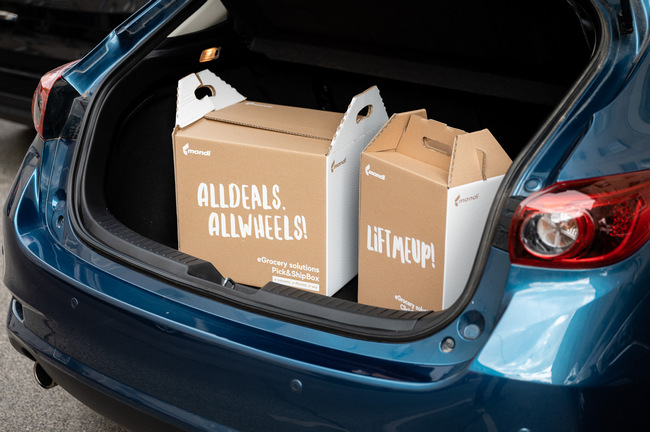
Mondi’s latest eGrocery packaging solutions include:
Pick&ShipBox – a one-pack solution for all channels. It adapts to multiple requirements and offers convenience features such as easy lifting and opening.
PantryBox – for quick and easy filling and closing. It is strong, stackable, and suitable for carrier shipping or click & collect.
RecipeBox – for doorstep delivery of fresh produce and groceries. It has an integrated lid and optional holes for better ventilation.
EatsBox – for smaller local deliveries by bike or scooter. It is lightweight and offers a quick filling option.
Click&LoadBox – for click & collect of mixed grocery orders. It has handles for loading into cars and carrying home.
Click&EnjoyBox – for holiday, gift or seasonal promotion packs. It has compartments for tall products like bottles, with an easy handle carrier.
Click&CarryBox – for heavier mixed orders, providing strength and stability. It has an integrated handle for easy carrying.
“Mondi's action plan MAP2030 has ambitious sustainability commitments over the next ten years including a target to make 100% of our products reusable, recyclable or compostable by 2025. This expansion of our eGrocery portfolio is another example of how we want to drive real change and support retailers to use sustainable packaging solutions that keep materials in circulation and prevent waste. Whether near or far, fragile glass containers or perishable vegetables, our eGrocery portfolio offers efficient and protective packaging solutions,” concludes Schoonbrood.
About Mondi
Mondi is a global leader in packaging and paper, contributing to a better world by making innovative packaging and paper solutions that are sustainable by design. Our business is integrated across the value chain – from managing forests and producing pulp, paper and plastic films, to developing and manufacturing effective industrial and consumer packaging solutions. Sustainability is at the centre of our strategy and intrinsic in the way we do business. We lead the industry with our customer-centric approach, EcoSolutions, where we ask the right questions to find the most sustainable solution. In 2020, Mondi had revenues of €6.66 billion and underlying EBITDA of €1.35 billion.
Mondi has a premium listing on the London Stock Exchange (MNDI), and a secondary listing on the JSE Limited (MNP). Mondi is a FTSE 100 constituent, and has been included in the FTSE4Good Index Series since 2008 and the FTSE/JSE Responsible Investment Index Series since 2007.
Metsä Board increases annual folding boxboard production capacity by 200,000 tonnes in Husum
Metsä Board, part of Metsä Group, announced on 27 July 2021 an investment of EUR 210 million in increasing folding boxboard capacity at its Husum mill in Sweden. The company is responding to growing demand for sustainably produced packaging materials that support the circular economy. The investment strengthens Metsä Board's position as the leading producer of folding boxboard in Europe.
At present, the annual folding boxboard capacity of the Husum’s paperboard machine BM1 is 400,000 tonnes, and after the investment it will rise to 600,000 tonnes. Additional capacity will enter the market during 2024–2025. The investment value is approximately EUR 210 million, divided in 2021–2024 and mainly in 2022–2023. The investment will be financed with current cash funds and future cash flows from operating activities. The Husum port concept will be examined separately, taking into account the growing logistics volumes of the entire integrated mill, and the necessary potential investments will be decided later.
Preparatory work for construction will begin in October 2021 in connection with the planned annual maintenance shutdown of the Husum integrated mill. The ramp-up of additional capacity is expected to start in autumn 2023 and full production capacity is expected to be reached by the end of 2025.
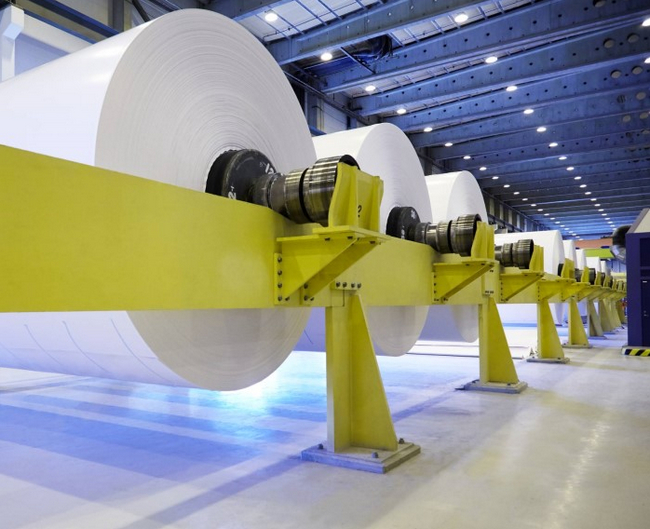
The investment will increase Metsä Board's annual sales by approximately EUR 200 million. In addition, the investment is estimated to have a positive impact of approximately EUR 50 million on the company's annual comparable EBITDA. Sales growth and EBITDA improvement are expected to be achieved in full in 2026.
Metsä Board’s operating result for July–September 2021 will include an impairment loss of approximately EUR 5 million related to the paperboard machine BM1, and it will be reported as an item affecting comparability.
The additional capacity will be directed mainly to the North American and European markets, where the demand growth for Metsä Board's premium lightweight paperboards is expected to continue. Metsä Board's folding boxboard is used, for example, in food, pharmaceutical and cosmetics packaging as well as in food service packaging.
METSÄ GROUP
Metsä Group
www.metsagroup.com
Metsä Group is leading the way in advancing the bioeconomy. We invest in growth, bioproduct development and a fossil free future. The raw material for our products is renewable wood from sustainably managed northern forests. We focus on the growth sectors of the forest industry: wood supply and forest services, wood products, pulp, fresh fibre paperboards, as well as tissue and greaseproof papers.
Metsä Group’s annual sales amount to approximately EUR 5.5 billion, and we have around 9,200 employees in 30 countries. Our international Group has its roots in the Finnish forests: our parent company is Metsäliitto Cooperative which is owned by 100,000 forest owners.
Metsä Board
www.metsaboard.com
Metsä Board is a leading European producer of premium fresh fibre paperboards. We focus on lightweight and high-quality folding boxboards, food service boards and white kraftliners. The pure fresh fibres we use in our products are a renewable resource, traceable to origin in sustainably managed northern forests. We are a forerunner in sustainability, and we aim for completely fossil free mills and raw materials by 2030.
Together with our customers we develop innovative packaging solutions to create better consumer experiences with less environmental impact. In 2020, our sales totalled EUR 1.9 billion, and we have about 2,400 employees. Metsä Board, part of Metsä Group, is listed on the Nasdaq Helsinki.
Ground-breaking ice cream packaging won BillerudKorsnäs’ design competition PIDA Germany
The winners of BillerudKorsnäs’ design competition PIDA Germany – Packaging Impact Design Award – have been selected. The most prestigious prize of the competition, PIDA Gold Award, went to the design student Hagen Neugebauer from Hochschule der Medien in Stuttgart who also won the prize “Highest level of Innovation”. The winning packaging project “Krystal Kream” is designed for a vegan Italian ice cream that impressed the jury with its innovative idea and construction. “It’s amazing. I’m stunned. I didn’t believe that this could happen. There was so much good work done by every group” says Hagen Neugebauer.
The winning packaging project “Krystal Kream” responds perfectly to this year’s brief – to create a package that speaks to our senses. The motivation of the jury reads:
“The overall idea was felt to be future-proof and ground-breaking, as many consumers would like alternative solutions for the packaging materials used today – also in this market segment. Use of materials, shaping, handling and differentiation from existing packaging solutions should enable the start towards a better future with this idea.”
Hagen Neugebauer who won the PIDA Gold Award at the German PIDA event automatically qualifies for the Grand Finale. At the final – which takes place at the Luxe Pack trade show in Monaco on September 27 – an international winner will be appointed. This means that the German winner will be up against the winners of the three other semi-finals; students from USA/UK, France, and Sweden.
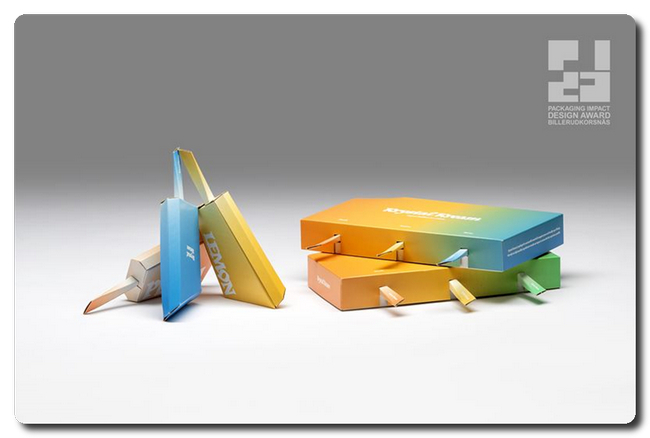 The packaging concept “Krystal Kream” won both the competition's top prize – PIDA Gold Award – and the “Highest Level of Innovation Award”.
The packaging concept “Krystal Kream” won both the competition's top prize – PIDA Gold Award – and the “Highest Level of Innovation Award”.
More students awarded
At the event, another three prizes were presented. The winner of the PIDA Gold Award “Krystal Kream” was awarded once again and received the “Highest Level of Innovation Award” with the motivation:
”A packaging concept, which is still completely unknown for the relevant market segment, convinced the jury with the materials used, innovative design and functionality of individual components, which were consistently made from the same material through skilful construction”
The “Highest Level of User Friendliness Award” went to the entry “hey Ocean!” created by Nadine Voll and Judith Kellermann from Hochschule der Medien, Stuttgart. A packaging solution made for bath bombs, and the jury said:
“For this project, from the jury's point of view, an overall concept was developed that takes the consumer with them from the beginning to the end of the story told by the product and accompanies them with various features. A packaging solution that, together with the product, surprises and delights the buyer in all phases of use.”
The “Highest Level of Sustainability Award” was presented to Vanessa Hoffer from Hochschule der Medien, Stuttgart for the entry “Miss Fortune”, a packaging solution for reusable razors. The jury’s motivation read:
“With the aim of replacing plastic blisters with a pure cardboard solution, a new packaging was created for reusable razors that not only fulfilled this goal, but also triggered all steps of optical and haptic perception and was also designed down to the last detail. The tamper-evident closure, child safety and product fixation were also considered, as was the overall aesthetic effect of the pack through graphics, embossed areas and varnish effects.”
The winners were selected by a jury of prominent industry professionals, who were very impressed by this year’s contestants.
“The jurors were so impressed with the thoughtful and exciting concepts presented by the teams in this competition. We discussed and debated the entries at length before determining the winning team in each category. Each participant should be so very proud of the work accomplished under extraordinary circumstances,” says Helmut Sieber of Edelmann, chairman of the jury for PIDA Germany.
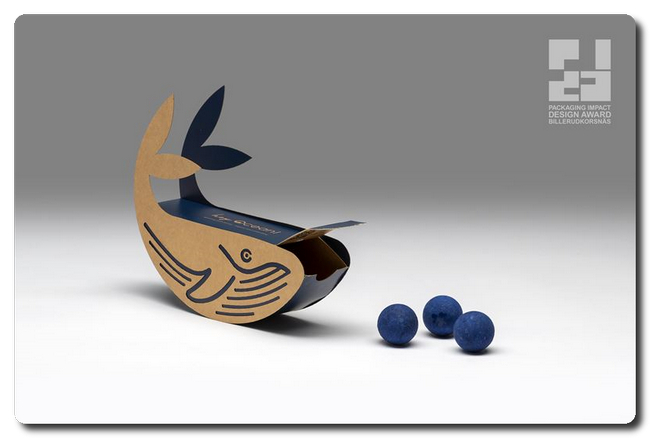 The “Highest Level of User Friendliness Award” went to “hey Ocean!”.
The “Highest Level of User Friendliness Award” went to “hey Ocean!”.
A creative arena for the packaging community
BillerudKorsnäs, the company behind PIDA, arranges the competition in cooperation with leading universities and design colleges in the USA, the UK, France, Germany, and Sweden. The competition gives the students an opportunity to work on a real packaging design project under the same conditions as an authentic assignment. What’s more, it is also a chance for the students to showcase their ideas and creativity to established professionals who attend the events every year to be inspired and meet the packaging designers of tomorrow.
“With PIDA, we want to drive the development of packaging design forward while also establishing a meeting place for the industry and the schools. This year marks the 16th anniversary of the competition and interest for PIDA grows steadily for every year – at the schools as well as in the packaging business,” says Anders Gathu, Marketing Manager BillerudKorsnäs.
About BillerudKorsnäs
BillerudKorsnäs provides packaging materials and solutions that challenge conventional packaging for a sustainable future. We are a world leading provider of primary fiber-based packaging materials and have customers in over 100 countries. The company has 8 production sites in Sweden, Finland and the UK and about 4 500 employees in over 13 countries. BillerudKorsnäs has an annual turnover of about SEK 24 billion and is listed on Nasdaq Stockholm. http://www.billerudkorsnas.com/
About PIDA
For the 16th consecutive year the international packaging design competition PIDA (Packaging Impact Design Award) is arranged by BillerudKorsnäs. Around 200 design students from France, Germany, Sweden, the UK, and the USA participate. At each national event winners are selected in the following categories: Highest Level of Sustainability, Highest Level of Innovation, Highest Level of User Friendliness, and PIDA Gold Award. The competition aims to demonstrate the importance of packaging to products, brands and the environment.
